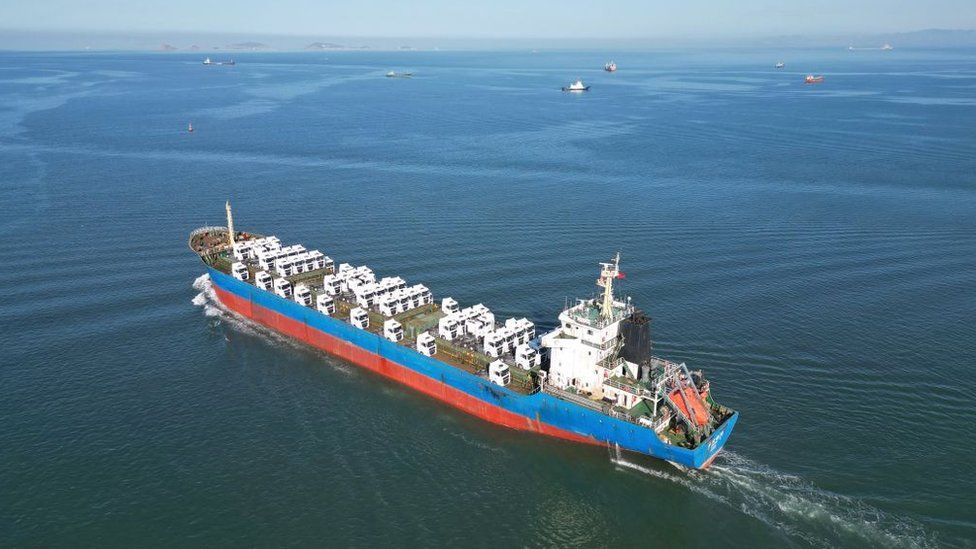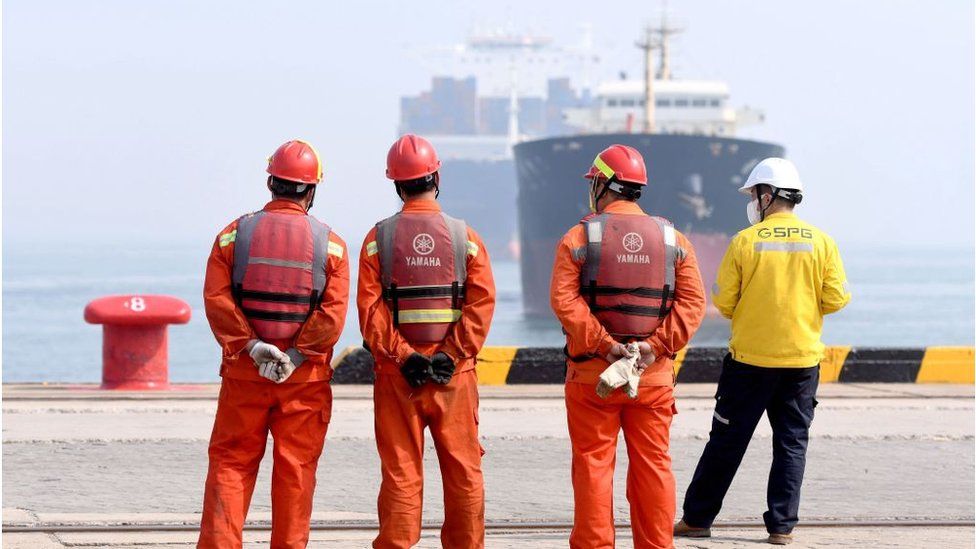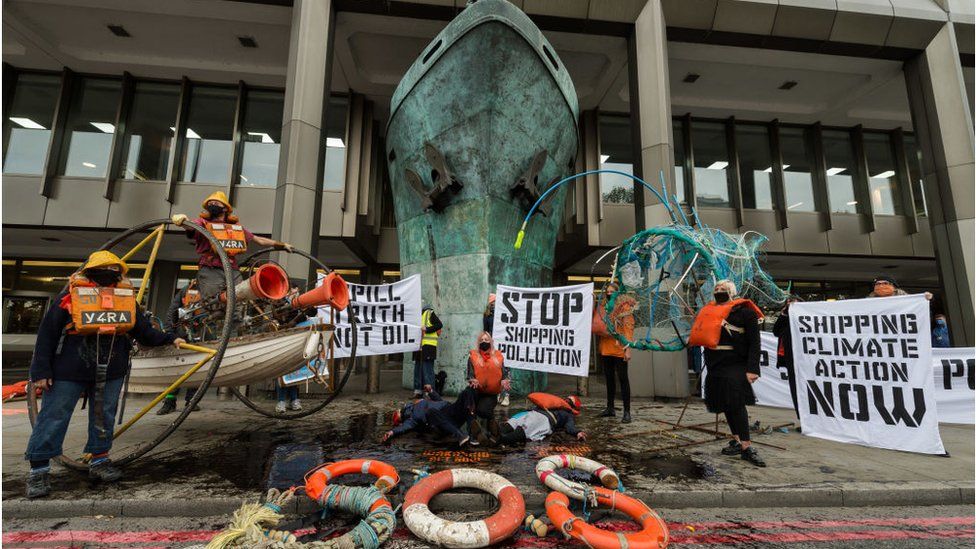Shipping faces showdown over greenhouse gases

The shipping industry is under growing pressure to dramatically curb planet-warming emissions from smokestacks.
Maritime transport emits as much CO2 in a year as Germany, but is the biggest global sector without a goal for cutting emissions to "net zero".
Some delegates at the UN summit starting on Monday want this by 2050 and emissions halved by 2030.
Campaigners say it would be the climate "deal of the decade" if agreed.
Reaching "net zero" would mean that any remaining shipping emissions were matched by actively removing greenhouse gases from the atmosphere.
For years, the shipping industry, governments and environmental groups have wrangled on how to make the transport of goods by sea greener.
The issue was deemed just too difficult to be included in the 2015 Paris climate pact to keep down global warming.
It matters because around 90% of the products and goods the world consumes travel by ship.
These vessels often burn highly polluting fuels which contribute as much as 3% of the world's global carbon dioxide emissions, roughly the same amount as that of Germany or 243 coal plants.

That could grow by as much as 50% by the middle of this century if stronger action isn't taken, experts have warned.
The shipping industry's current plans only envisage a halving of emissions by the middle of this century, a commitment that scientists say is far out of line with the Paris climate agreement.
This week, under the control of the UN's International Maritime Organisation (IMO), delegates from 175 shipping countries will meet in London to try and agree on a new timeline for completely decarbonising their industry.
Campaigners want to see a much tougher target, with a reduction of approximately half by 2030 and a new net-zero goal for 2050. Others want to go further still and see a full decarbonisation brought forward to 2040.
"If member states get this right, they can set the shipping sector in line to meet the Paris temperature targets and promote investment in green technologies that will completely transform the sector," said Kerrlene Wills, Director for Ocean and Climate, UN Climate Foundation.

Many countries are in favour - and some shipping companies also want to push forward with plans for cleaner transport. The world's second largest container shipping line, Maersk, are taking a bullish approach, setting their own goal of zero emissions by 2040.
Previous attempts to strengthen climate ambition at the IMO, have fallen foul of a number of countries such as China, India and Saudi Arabia, who are keen to protect their own domestic shipping interests.
Observers say that if the London meeting can agree these new goals for all shipping, it would the biggest advance against climate change since the Paris agreement.
"You would quite genuinely have a climate agreement not just of the year, but probably of the decade," said John Maggs, from the Clean Shipping Coalition of campaigners, speaking to reporters.
Within the wider industry, there is a recognition that reform is necessary but there is a concern that new targets will be too challenging and expensive.
However recent research shows that cutting shipping emissions in half this decade would only add some 10% to the total costs of operations.
Last week, the Secretary-General of the IMO, Kitack Lim urged delegates "to make the compromises and find solutions", describing 2023 as "a year of decisive climate action".
His views were echoed by Faig Abbasov from campaigners Transport and Environment:
"Waiting until 2050 to decarbonise is a bit like waiting until your house burns before you call the fire brigade… what is needed is political will; IMO needs to either step up or ship out!"
No comments:
Post a Comment